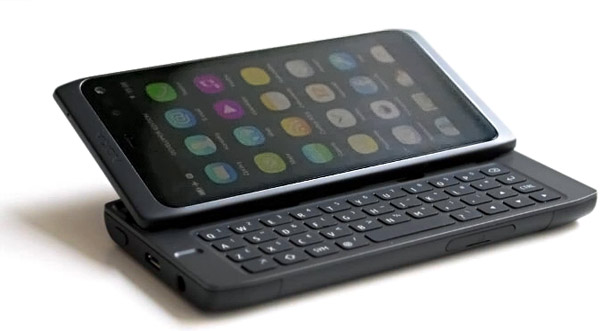Some weeks ago, probably a month ago now, I made a phone trade with a friend of mine. In the trade, I acquired the not-for-sale Nokia N950. I’ve been wanting to get an extended play with this device for sometime. Besides the user interface experience being like nothing else (except the for-sale N9 that’s hard to get my hands on as well), there are no other mobile devices out there with the pedigree of a Nokia and the openness of a full Linux distro (Maemo/MeeGo) under the hood. For a tinker-er like me, this is just like letting me loose in a candy story, when my teeth are coming in.
During this time, I’ve been going back and forth between the N950 and my N8. Back and forth between MeeGo and Symbian. Learning a bit of what Nokia understood, and a bit more of what some developers/service providers have felt. There’s been something of an enjoyment when it came to setting up multiple Google accounts (without needing Exchange ActiveSync to get my calendars), Dropbox, Evernote, and several other services. There’s been some mild frustrations as in when I unintentionally duplicated the contacts on both devices because I made edits on both and it didn’t reconcile properly. And there’s been some joy moments like in finding a drawing app that felt a lot like when I used Adobe Ideas on the iPad (simple, zooming, and easy to push wherever). Its been enlightening, and aside from the old battery, useful.
That said, the other night, when I should have been getting some sleep before a few meetings the next day, I was captured into reading Chasing the Cicada over at Metal Floss. It reads like a spy/crime novel, but is mainly about the depths of the Internet that we usually don’t see. Per my usual when a rabbit hole like that reveals itself, I start searching out things that stuck out in the article, one of which being the Tor Project. I’d forgotten about the Tor Project. At one point I was even looking at the Android port of aspects of the Tor Project called Orbot (really, if you use Android, this is a no-brainer direction you should take your platform usage). It then hit me to connect with some friends and rekindle the conversation about the N950 and making something useful out of this “dead platform” for a few ministry efforts.
It was at that point that I remembered why I had the N950 to begin with.
You see, I’d wanted the N950 not for myself, but because it would position my use of mobile into a few directed areas:
- 1st, I’d be using a platform that would be getting attention for a specific mobile ministry project (or two)
- 2nd, I’d be working with others who not only knew the platform better, but could expand my knowledge of specific mobile ministry applications that don’t usually get the light of day
- 3rd, there would again be this experimental aspect to MMM – that kind of thing excites me and keeps me going in this space when times like the holidays roll around and everything slows down
In a real sense, I had to re-own the fact that to have the N950 in my possession could not be about my enjoying a new platform or having a new phone to play with, but it was to reignite the reasons why MMM is directed the way that it is – to ask questions, present approaches, and experiment around those ideas and activities that happen at the intersection of faith and mobile technology. Nothing about keeping this mobile in my hands, double-tapping the screen just to wake it up, pushed that purpose forward. If its in my hand, it has to be pushing this faith forward, and I already had the opportunity, I just needed to be kicked in the pants.
We sometimes get lost in the course of getting something new, or finding out that what we have in our hands is a lot more impressive than we thought. That same night that I realized this, I talked to a guy who had the new Google Nexus 4 for just about a week, but uses it no differently than a feature phone. I asked him of all of the unique features of the Nexus 4 and how he planned on using them and his reply was more like “I didn’t plan on doing that” rather than “let me explore how that feature could enhance how I view and do mobile.” To his credit, he also did remark that he’d not considered mobile on the kind of level towards the questions that I asked either. I know that I think a bit deeper about these things than some other folks.
Still, mobile is a very present avenue for all of us to take note as to the mission that we have in front of us. For some, the mobile is a siren call towards the kinds of security that you must keep up for those whom you are connected to. For some, mobile is a call to accountability in media, as well as relationships. And for others still, mobile is a beacon that there’s potential for something more than just reaching out and touching someone – even if all we needed to do at all is just touch them I get it. And I hope that you do as well.
So the kick happened. And I’m waiting to hear from a few folks who have a similar idea about the N950 and a few directions that we can take things. I remember the reason that I’ve got this device in hand. And I hope that you remember the reason why you have one in yours. Remember the purpose… then walk in it.
